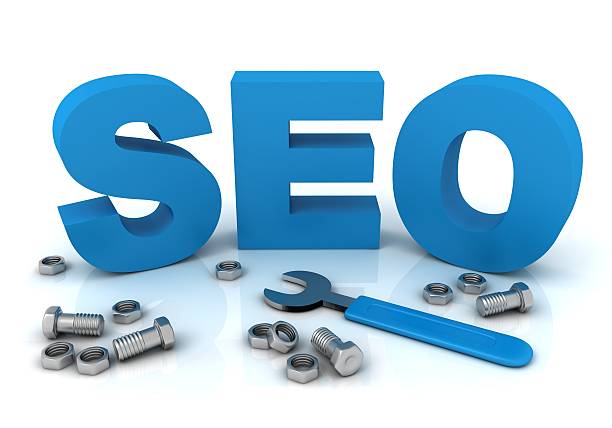In competitive marketing landscape, having a solid local SEO plan is vital for marketing agencies. Businesses aiming to attract nearby customers must use local SEO strategies to rank higher in search results, drive website traffic, and build local authority. This guide offers step-by-step insights into effective methods tailored specifically for marketing agencies.
What Is Local SEO and Why Is It Important?
Local SEO focuses on improving search visibility for businesses targeting customers within a specific geographic area. For marketing agencies, this means connecting with clients nearby who are actively searching for services. Unlike traditional SEO, local SEO highlights location-based factors like Google My Business profiles, local keywords, and citations.
For instance, when someone searches for “marketing agencies near me,” search engines prioritize businesses close to the user’s location. Without proper local SEO strategies, even the best agencies might lose potential clients to competitors.
The Role of Google My Business in Local SEO
Claiming and Optimizing Your Profile
Google My Business (GMB) is a foundational tool for local SEO. It allows agencies to manage their online presence on Google, including search and maps. Start by claiming your GMB profile and filling out every section accurately.
- Use the agency’s correct name, address, and phone number.
- Select relevant categories to describe your services.
- Add high-quality photos showcasing your agency’s office or team.
Maintaining an Active Profile: Local SEO Strategies
Keeping your GMB profile updated is equally important. Post updates, respond to customer reviews, and share announcements to boost engagement.
A well-maintained profile helps build trust, increases clicks, and improves your rankings in local searches.
Building Local Citations and Listings
What Are Local Citations?
Citations refer to mentions of your agency’s name, address, and phone number (NAP) on other websites. They are critical for verifying your business’s credibility to search engines.
How to Get Started with Citations
- Submit Listings to Directories: Include your business in reputable local directories such as Yelp, Yellow Pages, and Chamber of Commerce websites.
- Ensure Consistency: Always use the same format for your NAP information across all platforms to avoid confusion.
- Fix Inaccurate Listings: Use tools like Moz Local or BrightLocal to identify and correct inconsistent citations.
Consistent citations increase your chances of appearing in local search results, bringing more clients to your door.

Keyword Research for Local SEO
Why Local Keywords Matter: Local SEO Strategies
Using the right keywords ensures your agency appears in searches related to your location. Local keywords combine services with a geographic element, such as “digital marketing services in Denver.”
Steps for Effective Keyword Research
- Think Like a Customer: Consider what potential clients might type when searching for your services.
- Use Free Tools: Google Keyword Planner and Ubersuggest are great for finding high-volume local keywords.
- Analyze Competitors: Check which keywords rival agencies rank for in your area.
Once you identify suitable keywords, use them naturally in website content, blogs, and meta descriptions to improve visibility.
Creating Location-Specific Pages
What Are Location Pages?
If your marketing agency serves multiple areas, location-specific pages are a great way to target different cities or neighborhoods. Each page should include unique content tailored to the audience in that area.
Best Practices for Location Pages
- Include the focus keyword, such as “Local SEO strategies for marketing agencies in Atlanta.”
- Highlight client testimonials or case studies from the region.
- Add embedded maps for a local touch.
Properly structured location pages increase your agency’s chances of appearing in hyper-local search results.
The Importance of Reviews for Local SEO Strategies
How Reviews Boost Rankings
Positive reviews signal to search engines that your agency is reliable and trusted in the community. Google’s algorithm considers review quantity and quality when ranking businesses in local search results.
Tips for Managing Reviews
- Politely ask happy clients to leave reviews on your Google My Business page.
- Respond to reviews, both positive and negative, to show that your agency values feedback.
- Avoid fake reviews, as they can damage your reputation.
A steady flow of genuine reviews helps establish your credibility and attracts more leads.

On-Page Optimization for Local SEO Strategies
Key On-Page Elements to Focus On
Optimizing your website’s on-page elements ensures that search engines understand your content and its local relevance.
- Title Tags and Meta Descriptions: Include your focus keyphrase, such as “Local SEO strategies,” naturally.
- Header Tags: Use headings to break content into readable sections, incorporating local keywords.
- Internal Links: Connect related pages on your site to enhance navigation and keep users engaged.
- Mobile-Friendly Design: Since most local searches happen on mobile devices, ensure your site is responsive and loads quickly.
A well-optimized website is a cornerstone of successful local SEO.
The Power of Local Link Building
What Is Local Link Building?
Local link building involves earning backlinks from websites based in your area. These links act as endorsements, improving your website’s authority.
Strategies for Building Local Links: Local SEO Strategies
- Partner with Local Organizations: Sponsor events or collaborate with local businesses.
- Write Guest Posts: Contribute valuable content to local blogs or news sites.
- Create Shareable Content: Publish guides or infographics specific to your region.
Quality backlinks not only improve rankings but also drive more local traffic to your agency’s website.

Tracking and Measuring Local SEO Strategies Performance
Key Metrics to Monitor
Measuring the impact of your local SEO efforts ensures continuous improvement. Focus on the following metrics:
- Local Search Rankings: Check where your agency ranks for target keywords.
- Website Traffic: Analyze how much of your traffic comes from local searches.
- Conversion Rates: Track how many visitors contact or hire your agency.
Tools for Performance Tracking
Use tools like Google Analytics and Google Search Console to monitor your progress and identify areas for refinement.
Local SEO for Voice Search
The Rise of Voice Search: Local SEO Strategies
With the growing popularity of voice assistants like Siri and Alexa, optimizing for voice search has become important. Voice searches often use natural, conversational language and long-tail keywords.
How to Adapt Your Strategy: Local SEO Strategies
- Incorporate question-based phrases, such as “Where can I find marketing agencies nearby?”
- Focus on creating FAQ sections to address common queries.
- Ensure your website loads quickly and delivers precise answers.
Catering to voice search trends can help your agency reach a broader audience.
Content Marketing for Local SEO Strategies
How Content Supports Local SEO Strategies
Creating high-quality content helps establish your expertise while targeting local keywords. Content types like blogs, videos, and guides keep your audience engaged and informed.
Ideas for Local Content
- Publish case studies featuring local clients.
- Share tips specific to businesses in your area.
- Create guides to local events or business trends.
A strong content strategy complements your local SEO efforts, building trust with both clients and search engines.
Conclusion: Local SEO Strategies
Using local SEO strategies is not just about ranking higher—it is about connecting with the clients who matter most to your marketing agency. From optimizing your Google My Business profile to building citations and creating location-specific content, these steps can significantly improve your local visibility. Remember, success requires consistent effort and tracking to ensure your strategies are working effectively.



